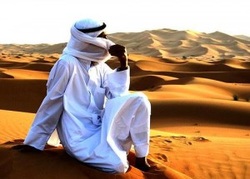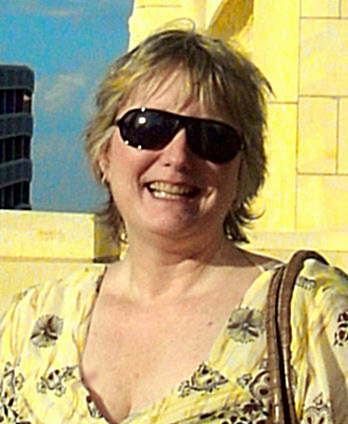
The Winged Warrior uses a conglomerate of desert-dwelling societies. One of my first images that came to mind when I was writing this novel was the Bedouins, part of a predominantly desert-dwelling Arabian genetic group traditionally divided into tribes or clans, known in Arabic as ʿašāʾir (عَشَائِر)..
According to Wikipedia (which is not used for the final research, but only as a place to begin), the term “Bedouin” derives from a plural form of the Arabic word badawī, as it is pronounced in colloquial dialects. The Arabic term badawī derives from the word bādiyah (بَادِية), which means semiarid desert (as opposed to ṣaḥrāʾ صَحْرَاء, which means very arid desert). The term “Bedouin” therefore means, “those in bādiyah” or “those in the desert”and therefore, perfect to begin with my Maajnaran people and culture.
“I against my brother, my brothers and I against my cousins, then my cousins and I against strangers”
is a famous Bedouin saying, effectively revealing their culture. Encroaching civilization and severe droughts have forced many Bedouin to leave their nomadic lifestyle for a more “civilized” life, yet the roots and culture remain with a very few. I dare say, it won’t be long until even this culture is either dead or watered down into a mere shell of its former existence.
The Maajnaran people face many of the same predicaments. Once a warring people broken up into tribal families, they now (at the book’s beginning) are loosely governed by Kaigan’s father who hears tribal concerns and mediates with other civilizations like Darhna’s Faalnaran people who have an abundance of wood, river, some fish, and fertile fields. If the Maajnarans want to burn wood instead of dung on the crisply cold winter nights in the desert, they purchase or barter for wood from Faalnaran traders and caravans.
Although the desert has numerous oasis areas where plants and animals and people thrive, they are limited and precious. The nomadic Maajnarans consider oasis-dwellers soft, but necessary for trade.
Water is coin in the desert and one must learn how to find desert-hidden wells and streams. He who controls water, controls life. And so the power struggles for dominance within the Maajnaran society are constant and often brutal.
One of the delights of writing a fantasy novel is the research required to create an interconnected and working world. I must admit, I’ve gotten lost on many a tangent while delving into desert life here on Earth. Desert life is as dichotic a lifestyle to me as it is to Darhna. And here I go, off to research.
According to Wikipedia (which is not used for the final research, but only as a place to begin), the term “Bedouin” derives from a plural form of the Arabic word badawī, as it is pronounced in colloquial dialects. The Arabic term badawī derives from the word bādiyah (بَادِية), which means semiarid desert (as opposed to ṣaḥrāʾ صَحْرَاء, which means very arid desert). The term “Bedouin” therefore means, “those in bādiyah” or “those in the desert”and therefore, perfect to begin with my Maajnaran people and culture.
“I against my brother, my brothers and I against my cousins, then my cousins and I against strangers”
is a famous Bedouin saying, effectively revealing their culture. Encroaching civilization and severe droughts have forced many Bedouin to leave their nomadic lifestyle for a more “civilized” life, yet the roots and culture remain with a very few. I dare say, it won’t be long until even this culture is either dead or watered down into a mere shell of its former existence.
The Maajnaran people face many of the same predicaments. Once a warring people broken up into tribal families, they now (at the book’s beginning) are loosely governed by Kaigan’s father who hears tribal concerns and mediates with other civilizations like Darhna’s Faalnaran people who have an abundance of wood, river, some fish, and fertile fields. If the Maajnarans want to burn wood instead of dung on the crisply cold winter nights in the desert, they purchase or barter for wood from Faalnaran traders and caravans.
Although the desert has numerous oasis areas where plants and animals and people thrive, they are limited and precious. The nomadic Maajnarans consider oasis-dwellers soft, but necessary for trade.
Water is coin in the desert and one must learn how to find desert-hidden wells and streams. He who controls water, controls life. And so the power struggles for dominance within the Maajnaran society are constant and often brutal.
One of the delights of writing a fantasy novel is the research required to create an interconnected and working world. I must admit, I’ve gotten lost on many a tangent while delving into desert life here on Earth. Desert life is as dichotic a lifestyle to me as it is to Darhna. And here I go, off to research.

 RSS Feed
RSS Feed